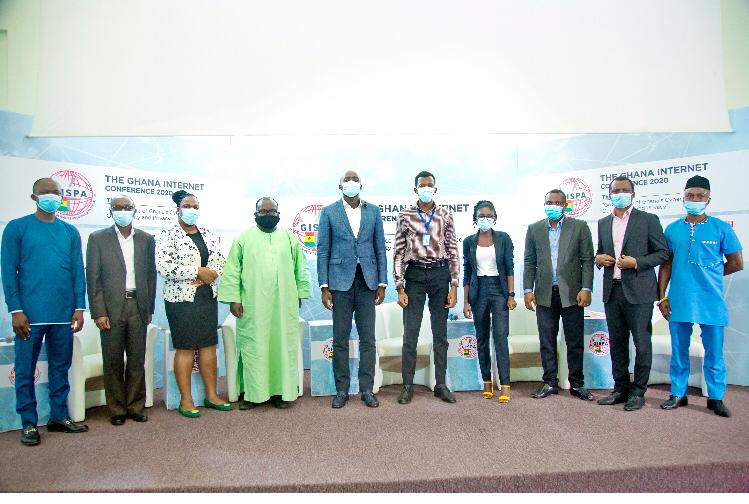
GISPA holds Ghana Internet Conference 2020
The Ghana Internet Services Providers Association (GISPA) has successfully organized the Ghana Internet Conference 2020.
This year's conference is the second of a series of annual conferences to be hosted by GISPA.
In 2019, the GISPA organized the maiden edition of the Ghana Internet Conference. That year, GISPA brought together key stakeholders in the Internet ecosystem to deliberate on policy matters and the cost of internet in Ghana.
In 2020, GISPA has once again assembled experts in the cyberspace for informed deliberations on Cybersecurity and privacy in Ghana.
This year's conference was held on Thursday, October 22, 2020, at the Kofi Annan Center of Excellence In ICT, Accra.
It was held under the theme: "Governance of Ghana's Cyber Space: Our Security and Privacy."
Delivering his welcome remarks at the conference, President of GISPA, Richard Densu, said conference sought to among other things, provide the "opportunity for us all to avers our minds to the security implications of the use of this service and what we can do together with all stakeholders within the ecosystem including the private sector, government, civil society and end-users to maximize the benefits of the use of the Internet."
He stated that the advancement in internet technology has been very positive in many ways, economically, politically, culturally and socially.
"The more open and more interconnected in ways that no one could imagine. I think the benefits are obvious to all of us," he said.

In his keynote address, Prof. Nii Narku Quaynor, Professor of Computer Science and Chairman of the Board of Dot Com, revealed that the style of governance appropriate for the Internet was the bottom-up multi-stakeholder approach to governance and self-regulation.
Trying to defend his position on the choice of governance structure for the internet, he stated: "I am speaking from experience having been Chairman of the General Assembly of the DNSO at ICANN in the ‘90s, founded the African Regional Internet Registry, Afrinic, and other organizations that practised multi-stakeholder bottom-up decision making."
He advocated for a widespread application of bottom-up community decision processes locally in the internet, cyberspace security and privacy policy discussions.
"My interest is what a community must do correctly in order to evolve a functional bottom-up decision process."
The bottom-up decision process, according to him, "is not same as have a policy or a decision in hand and consulting interested parties on it. That would be top-down."
"This is about a community addressing its issues together and making rules, standards, decisions or policies in a bottom-up way."
The origins of bottom-up processes come from how the internet is, a network of networks, internetworks, he noted.
"Each network is owned by a different organization/person who has his own providers and for different purposes and following different rules or policies. It is evident that for the whole internet is to work as one, each network must surrender and follow community agreed standards and policies we together create."
The Professor added that "That is bottom-up There are several situations where this naturally occurs but some examples in Ghana are: In an NREN has campuses where each is governed by different policies; can apply this to develop network routing policies, security policies, privacy policies etc.
"A campus has different departments with varied technology usage patterns and policies; can apply to acceptable use policies, networks interconnection policies, BYO device rules etc. Network operators come together to an Exchange Point (IX) to share a large switch to pass traffic to each other".
There was a panel discussion at this year's conference. The discussion was under the sub-theme: "Should the Government control the internet space?"
Contributing to the discussion, Michael Owusu Jnr, an official from the - Data Protection Commission, said hackers will spend all their time to penetrate internet spaces that are lucrative like banks and even countries.
"We have to make sure we are not just clicking on anything because you expose yourself and everyone else around you to be vulnerable. We are gradually interconnecting every document and information of us," he urged.
"We are preparing for any cyber hit. We are very ready and we are monitoring through constant training," he said of the Commission and indeed Ghana's preparedness to deal with threats from the cyberspace.
"It is important to protect ourselves everywhere on the internet. There should be awareness concerning security and privacy issues. There should be a collaboration between the private sector in order for governing the Ghana Cybersecurity space," he said.